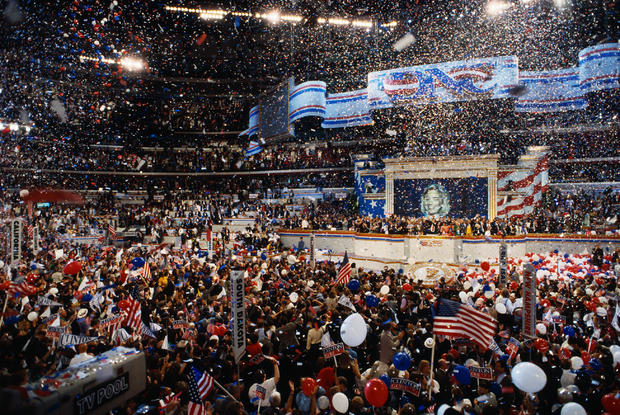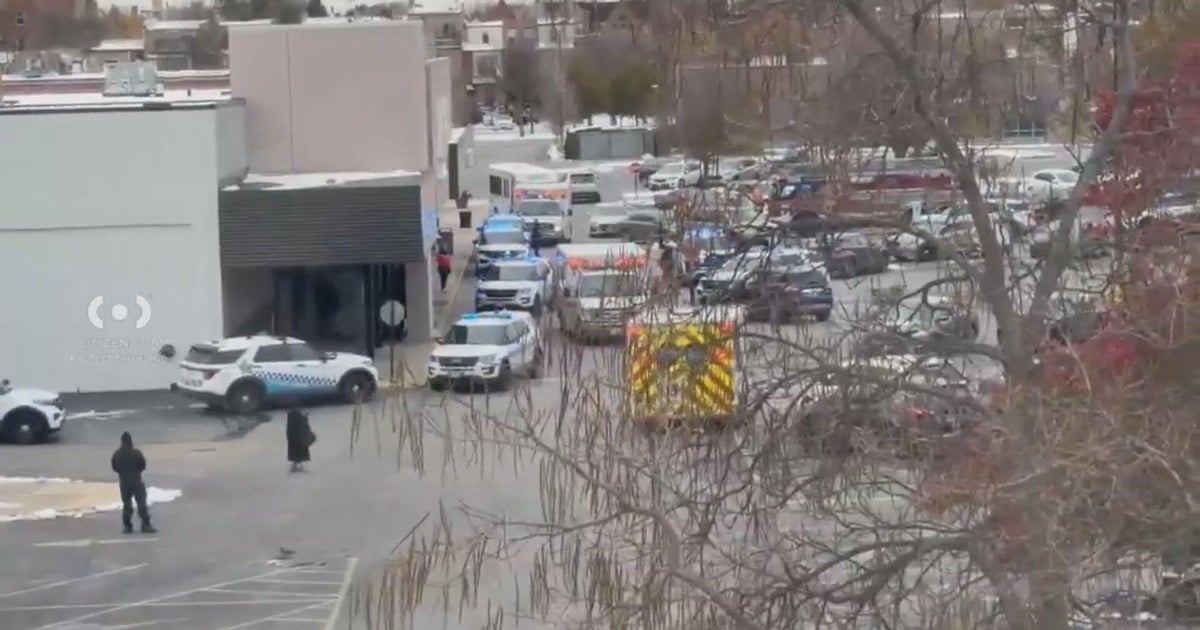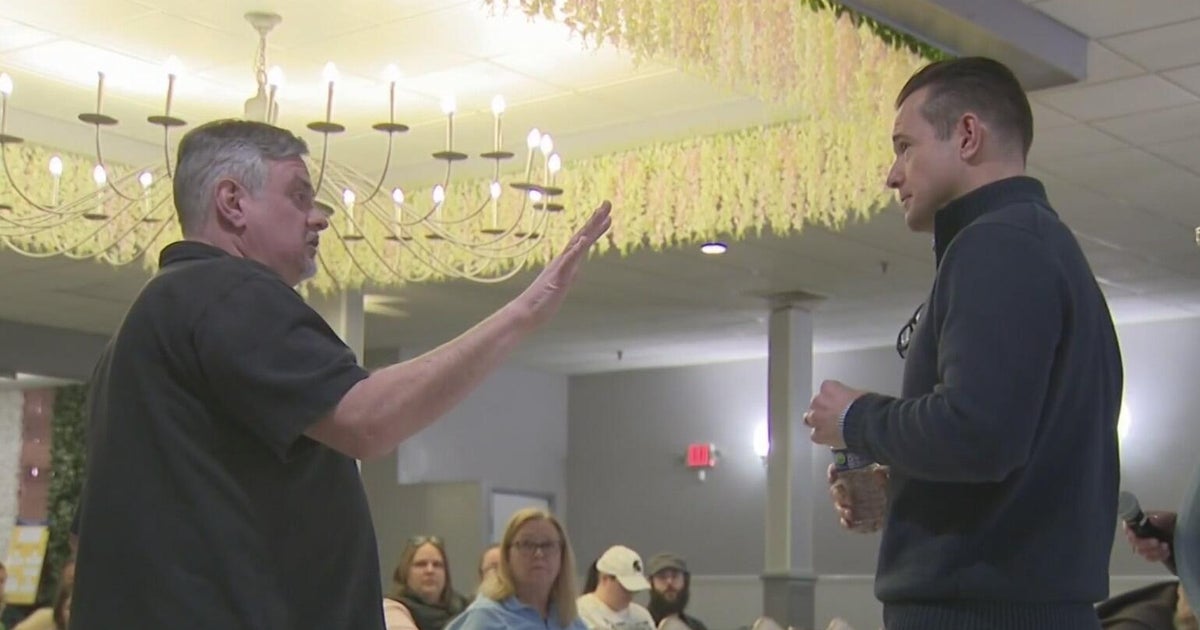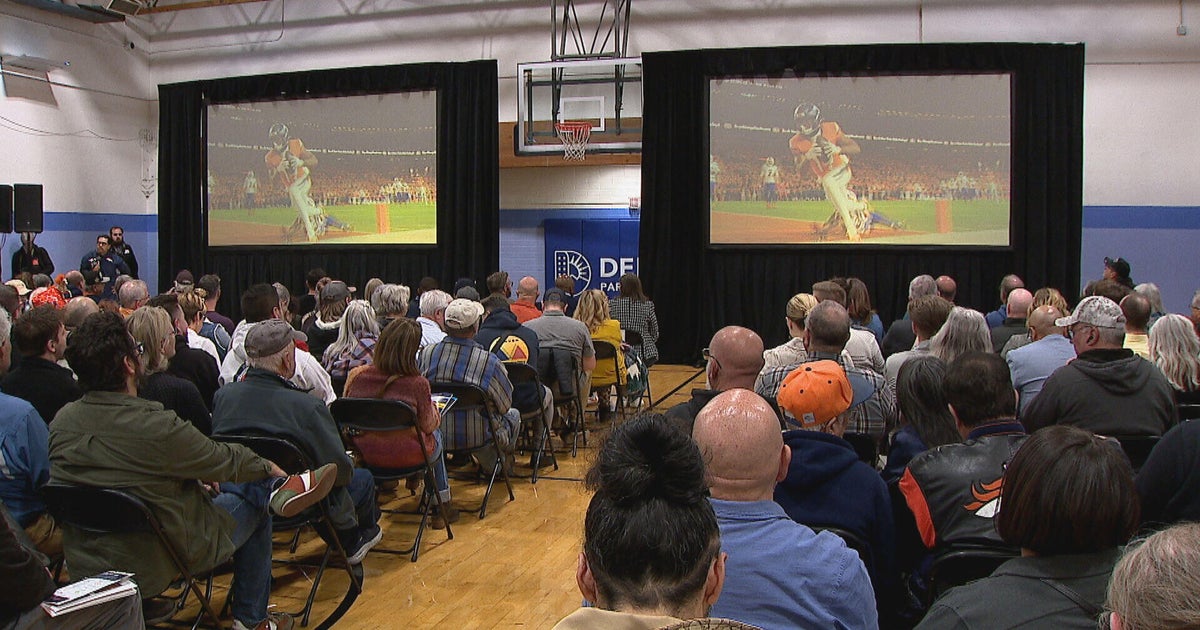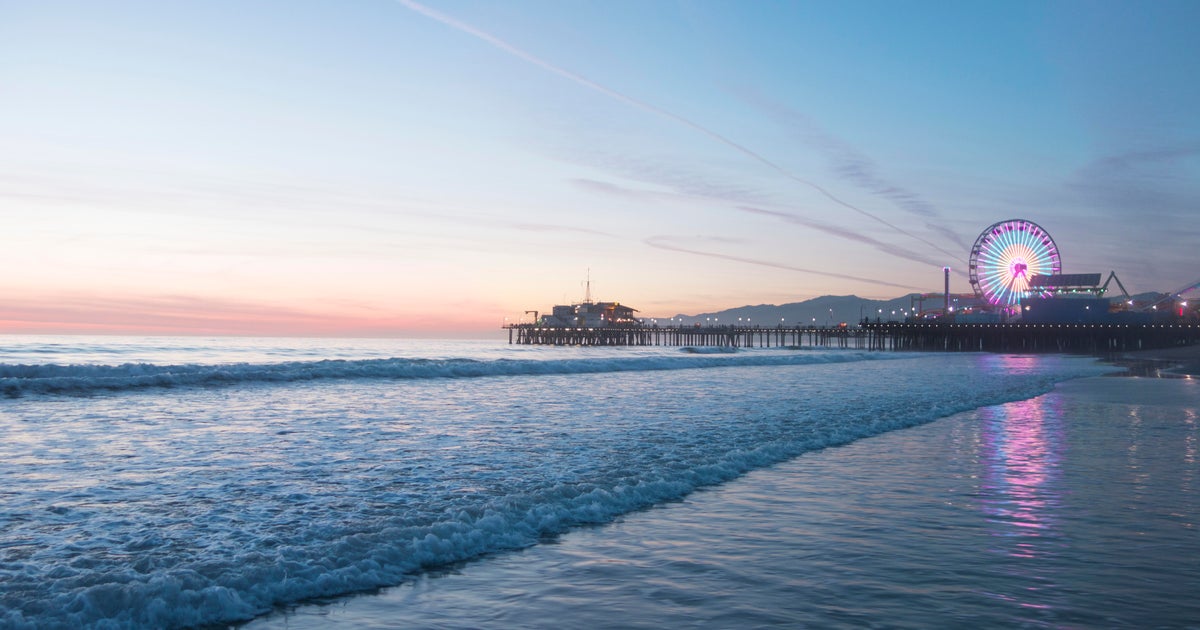Chicago to host 2024 Democratic National Convention
CHICAGO (CBS) -- The Democratic National Committee has chosen Chicago as the host for the 2024 Democratic National Convention.
After riots and horror accompanied the 1968 Democratic National Convention in Chicago, the city waited 28 years to host it again. Now, exactly 28 years after that convention in 1996, the DNC is coming back.
The Democratic National Committee said the convention will be held at the United Center from Aug. 19 to Aug. 22. Some activities will also be held at McCormick Place.
Other cities considered for the 2024 convention included Atlanta, Houston, and New York.
"Illinois along with Wisconsin, Michigan, and Minnesota – part of the "blue wall" – were crucial to the 2020 victory of President Biden and Vice President Harris and to Democrats' success in the 2022 midterm elections," DNC officials said in a press release.
As CBS 2's Chris Tye reported, we understand that President Joe Biden called Gov. JB Pritzker Tuesday morning – giving him the verbal thumbs-up. Pritzker said, "Mr. Biden, Chicago is your kind of town."
Chicago and state leaders are coming together Wednesday at 2 p.m. to celebrate the winning bid for the convention.
Democratic officials also said the Midwest will help showcase President Biden's economic agenda, noting Chicago has benefitted from $144 million in federal funding to rehab four Illinois International Port Calumet River Bridges, with billions more in investments to expand economic opportunity around the region.
"Chicago is a great choice to host the 2024 Democratic National Convention," Biden said in a statement. "Democrats will gather to showcase our historic progress including building an economy from the middle out and bottom up, not from the top down. From repairing our roads and bridges, to unleashing a manufacturing boom, and creating over 12.5 million new good-paying jobs, we've already delivered so much for hard working Americans – now it's time to finish the job."
As Mayor Lori Lightfoot gets ready to leave office, she is counting the announcement as a political victory.
"I am deeply honored that President Biden and the DNC have chosen Chicago," Mayor Lightfoot said in a statement. "I want to commend all the City government leaders who demonstrated with a proven track record of excellence that by choosing Chicago, the DNC, convention delegates, volunteers and others would be treated to a first class experience in our world class city. The DNC will create once-in-a-generation opportunities for job creation and business growth here in our city, and I'm proud that we got it done for the people of Chicago."
Local state and political leaders had been pushing hard for the DNC to bring the convention to Chicago.
"We know how to come together as a city government and the private sector to make sure that we can pull off large-scale events – which we do as a matter of course," Mayor Lightfoot said.
Mayor-elect Brandon Johnson, who will be sworn in on May 15, said he looks forward to working with the DNC to facilitate the convention to showcase the city.
"Chicago is a world-class city that looks like America and demonstrates the values of the Democratic Party," Johnson said in a statement. "We are unmatched when it comes to hosting events of this scale."
CBS News Senior White House and Political Correspondent Ed O'Keefe said the DNC site announcement was purposely delayed until after the mayoral runoff election.
"Ultimately, Governor Pritzker and local Democratic leaders there making the argument that the city was best equipped to handle large conventions – you all do them very well. You're a union city. You're one that of course is deep-blue Democrat – and also in the Midwest, which of course is an area of the country that President Biden – certainly Democrats more broadly – concern themselves with in hopes of winning back Wisconsin, Minnesota, Michigan, and Illinois of course – though that one's usually a reliably blue one," O'Keefe said.
O'Keefe said the convention would draw millions of dollars in revenue and bring attention to issues in the city. But on the other hand, it may place a magnifying glass on the city's problems – including public safety and challenges with the Chicago Public Schools.
But the city argued successful mega-events like Lollapalloza and the globally-scrutinized 2012 NATO summit proved we can handle a heavy lift.
Chicago is now a location firmly ensconced in a blue state – almost certain to vote for a Democratic presidential candidate in 2024. But why a blue state and not a purple or red state?
"Well because, you know, we're in the Midwest here – and it's undoubtedly Michigan, Wisconsin, Minnesota – those seats are going to be in play," said Democratic political strategist Pete Giangreco.
North Central College political science professor Stephen Maynard Caliendo said the evidence is not there to show holding a convention in a given state has an impact on votes.
"I don't think good data that shows that moving a convention to a particular state is helpful in terms of ultimately winning the electoral vote," Caliendo said.
In fact, organizers sold the Chicago convention bid as representing a coalition of midwestern swing state – with deep support from leaders in Minnesota, Wisconsin, Ohio, and Michigan. It is thus a bid to carry purple states in Big Ten country.
"There's been an absolute commitment from the bid to include the values and the leaders from throughout the region," said Kaitlin Fahey, chief executive officer of Magnify Strategies, which helped lobby the DNC to Illinois.
That coalition may mean a convention that pushes visuals and stories more Midwest-centric - and less of a Chicago affair next August.
But Illinois politics help too.
"We believe both the city and state are leading in way the Biden-Harris administration is also leading the country," Fahey said.
Atlanta was considered Chicago's strongest competitor for the convention. But compared to Georgia, Illinois' alignment with the Democratic Party helped –on issues ranging from women's rights to tougher gun laws, and also that deep support for organized labor.
There is also a financial factor. Chicago leaders promised DNC leaders the party will not lose any money by holding the convention in the city.
"Any city that's applying to host the convention, part of the agreement is that you will help fundraise for what is a large-scale, complex national event," Fahey said.
Meanwhile, the convention is projected to be especially good news for the hotel and tourism industry.
"It's a game-changer for us," said Michael Jacobson, president and chief executive officer of the Illinois Hotel and Lodging Association. "In the short term, it means 50,000 visitors coming from across the country and across the globe to Chicago - generating up to $200 million in economic activity."
But more than dollars and cents, the convention will hopefully be a chance to showcase Chicago in a different light, Jacobson said.
"Few times as a convention bring the media landscape, and how many reporters will come here - again, broadcasting to every corner of the world - and putting Chicago in that positive spotlight," Jacobson said. "So this is where the DNC Really rises above the rest in terms of the positive impact we'll have on the city."
The 2024 convention site plan was kept under tight wraps. Organizers say they'd met every week for a year and a half – with Gov. Pritzker's office, U.S. Sen. Tammy Duckworth (D-Illinois), and Mayor Lightfoot leading the charge.
Political and media consultant Delmarie Cobb, who served as press secretary for the 1996 DNC in Chicago, said that convention brought a lot of media attention because of protests and riots that erupted during the 1968 convention. In Grant Park, police and protesters clashed in a violent confrontation that a special commission later called a "police riot," and then-Mayor Richard J. Daley's handling of the convention protests tarnished his image.
"We had the most media coverage of any convention. There were 15,000 credentialed media people who came to the city of Chicago to cover the convention to see exactly if we would vindicate ourselves from the 1968 convention," Cobb said.
Cobb said the 1996 convention not only provided a direct economic boost to both large and small businesses, but helped through infrastructure improvements that were made to neighborhoods "to make sure that the conventioneers saw a very nice city of Chicago."
In 1996, organizers deposited $250,000 in a handful of community banks, to help provide loans to small businesses seeking to work with the convention, according to Cobb.
"Specifically for selling T-shirts, or buttons, or whatever, that they might not have the money up front; so it helped people all the way down from the large businesses to the small businesses," she said.
Chicago has hosted the Democratic National Convention 11 times, most recently in 1996, when it was held at the United Center.
Local leaders said the 1996 convention sparked the revolution of the West Loop neighborhood, bringing in big business to that part of town, but the question now is, can it happen again?
Lightfoot has previously said winning the spot could bring up to $200 million into the local economy and 50,000 visitors to the city in just one week.
"We are ready for our close-up," Lightfoot said last year.
Political leaders said Chicago needs the convention.
"Hosting the DNC in Chicago in 2024 will bring thousands of labor-friendly jobs to our city and our state," Gov. Pritzker said last year.
The Second City has been home to dozens of political conventions, but it's been nearly 30 years since the last one held in 1996. Before that, the city hadn't held a major party convention since the infamous 1968 event.
But will it provide an economic boost to the city as promised? CBS 2 Investigator Megan Hickey dug into that question last summer.
We looked to the two big political conventions in 2016 — the DNC in Philly and the RNC in Cleveland, which both brought in less money than originally projected.
But experts say that's only part of the impact.
It's coming up on 27 years since the United Center hosted the Democratic National Convention.
This time around, the city says an event this size will do much more than just revitalize the neighborhood.
"The DNC convention generates $150 to $200 million into the local economy of the city its hosted in, and we expect that to be no different in 2024," Lightfoot said last year.
But Victor Matheson, a professor at the College of the Holy Cross in Massachusetts, urged caution when making estimates about economic benefits.
"Take whatever number the boosters are telling you, move the decimal point one to the left, and that's probably a pretty good estimate of what you're actually going to get out of an event like this," Matheson said.
Matheson authored a study on the true economic impact of national political conventions – using hotel cost and occupancy data from previous years. He said the boost to the host city is closer to $20 million rather than $200 million.
"And what a big event like this does is it dissuades lots of people from coming to the city during those times," he said. "For example, when New York City held the 2004 Republican National Convention, attendance at Broadway shows was down 20 percent during that week - as regular tourists to the city were scared away by the security and the congestion."
The 2016 Democratic National Convention in Philadelphia and the Republican National Convention in Cleveland did bring in big bucks for the region, but according to economic impact studies, Philly's convention brought in about $120 million less than the $350 million that was projected, and Cleveland's convention brought in an impact of about $142 million — shy of the $200 million originally calculated.
"The devil is always in details," said Iryna Lendel, Director of the Center for Economic Development at Cleveland State University.
Lendel, one of the authors of that study, said their calculations were pretty conservative, and the large amount of security for the 2016 RNC — in part, because of a very notable convention attendee in then Republican nominee Donald Trump — had an impact on the bottom line.
"I think many regular visitors who would come to go to the city at that time, for dining or for just business, they just avoided Cleveland in those days, so that was sort of a negative effect," Lendel said.
But ultimately, she says Chicago is, in some ways, even better suited for a national convention. By contrast to Matheson, Lendel thinks the $150 to $200 million figure could be realistic.
"Chicago is a larger city with even more attractions than Cleveland. So it's realistic to expect that visitors who would come, would additionally explore the city, would dine in a city, would you know go to some additional events," Lendel said.
Of the $230 million -- the 2016 DNC in Philly brought in more than $132 million in direct convention-related spending and more than $11 million in state and local taxes.
Meantime, the 2024 Republican National Convention will be held in Milwaukee from July 15 to July 18.
And by the way, by the time the Democratic Convention rolls around in Chicago, the Kennedy Expressway construction project will only be 50 percent complete.



